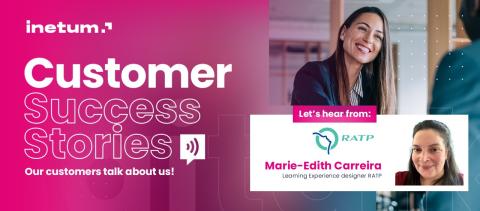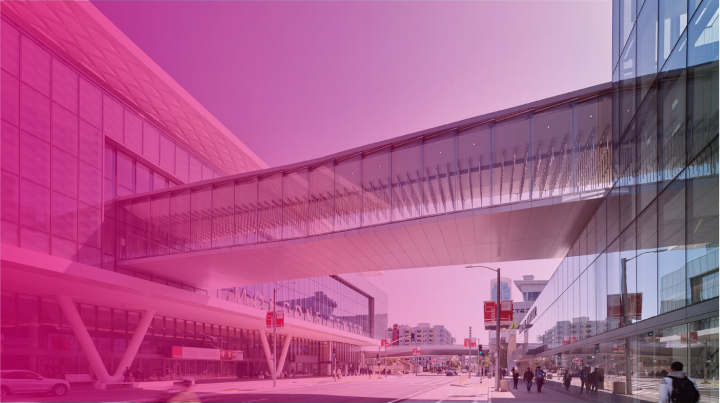The RATP Group Relies on Artificial Intelligence to Train its Station Agents
The RATP Group Relies on Artificial Intelligence to Train its Station Agents
Customer Success Stories
With "Mon Client IA ," the RATP Group is experimenting with a system that combines virtual reality and AI to train its station agents.
Creation date :

Handling an unhappy customer after a bus delay, explaining that it’s impossible to give change for a note that’s too large, or defusing a misunderstanding during rush hour—at the RATP, these day-to-day challenges are now anticipated in virtual reality: agents practice with AI-powered avatars capable of responding with all the objections a real customer might raise. This training is made possible thanks to "Mon Client IA."
With this solution, the RATP group aims to transform the training of its front-line customer teams. The tool leverages Inetum’s “Virtual Humans,” a technology that allows for the creation of conversational avatars powered by artificial intelligence.
“With a simple prompt describing the scene, we generate an avatar that reacts like a real passenger,” explained Julien Casarin, a manager in Inetum’s innovation department.
Four Scenarios to Pilot
Practically, agents can now train facing virtual customers who react realistically according to different scenarios. The RATP group has developed four initial functional scenarios for this pilot phase. Among them is the classic case of a customer wanting to buy a single ticket with a large note, while agents are unable to provide change for anything less than 10 euros. “They come to train their staff to follow the process that leads them to offer alternative solutions,” explained Julien Casarin.
Another case tested: managing a delay situation, where a bus user arriving late to their stop asks an agent for explanations. "These can be pretty stressful situations where VR and AI really prove their worth, allowing agents to train and be well-equipped once back in the field," said Marie-Edith Carreira, Learning Experience Designer at the RATP group.
The Advantage of Emotional Immersion
This approach marks a break from traditional online training. “By combining AI and VR, you are engaged not just cognitively, but also emotionally because there is a virtual human who speaks to you, who reacts, who expresses emotions,” explained Marie-Edith Carreira. This emotional dimension helps anchor learning and develop communication skills. With AI, this tool also offers the advantage of being able to vary dialogues endlessly, thus avoiding the repetitiveness of classic training sessions. Mon Client IA incorporates “customer personas” from RATP’s marketing segments and cases that represent the real-life situations agents encounter daily in stations.
A Rapid and Independent Adoption
Adoption has proven particularly straightforward. “With just two days of training, business teams are autonomous,” assured Julien Casarin. The tool enables educational teams to create their own scenarios simply by writing prompts, without requiring any specific technical skills. After three official presentations to various internal stakeholders, the RATP group identified key sponsors ready to roll out the solution to a panel of test users. The goal: to assess results and adjust the system before a hoped-for deployment by year’s end.
This pilot is part of a broader initiative to modernize training practices in public transportation, where the AI agent may soon become an essential training partner for all front-line customer roles.
Contact : Julien Casarin


